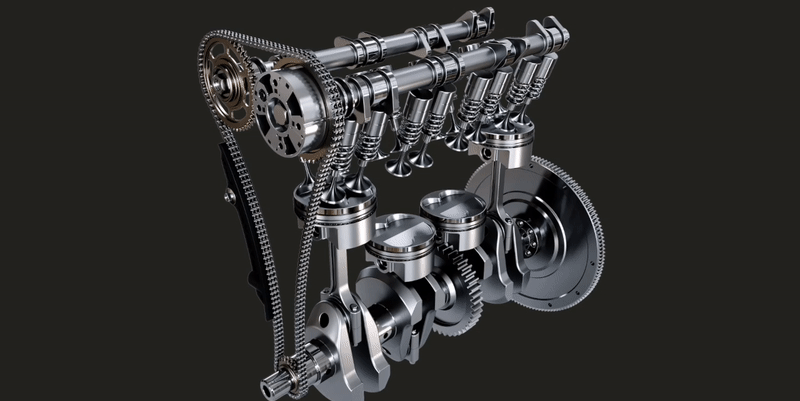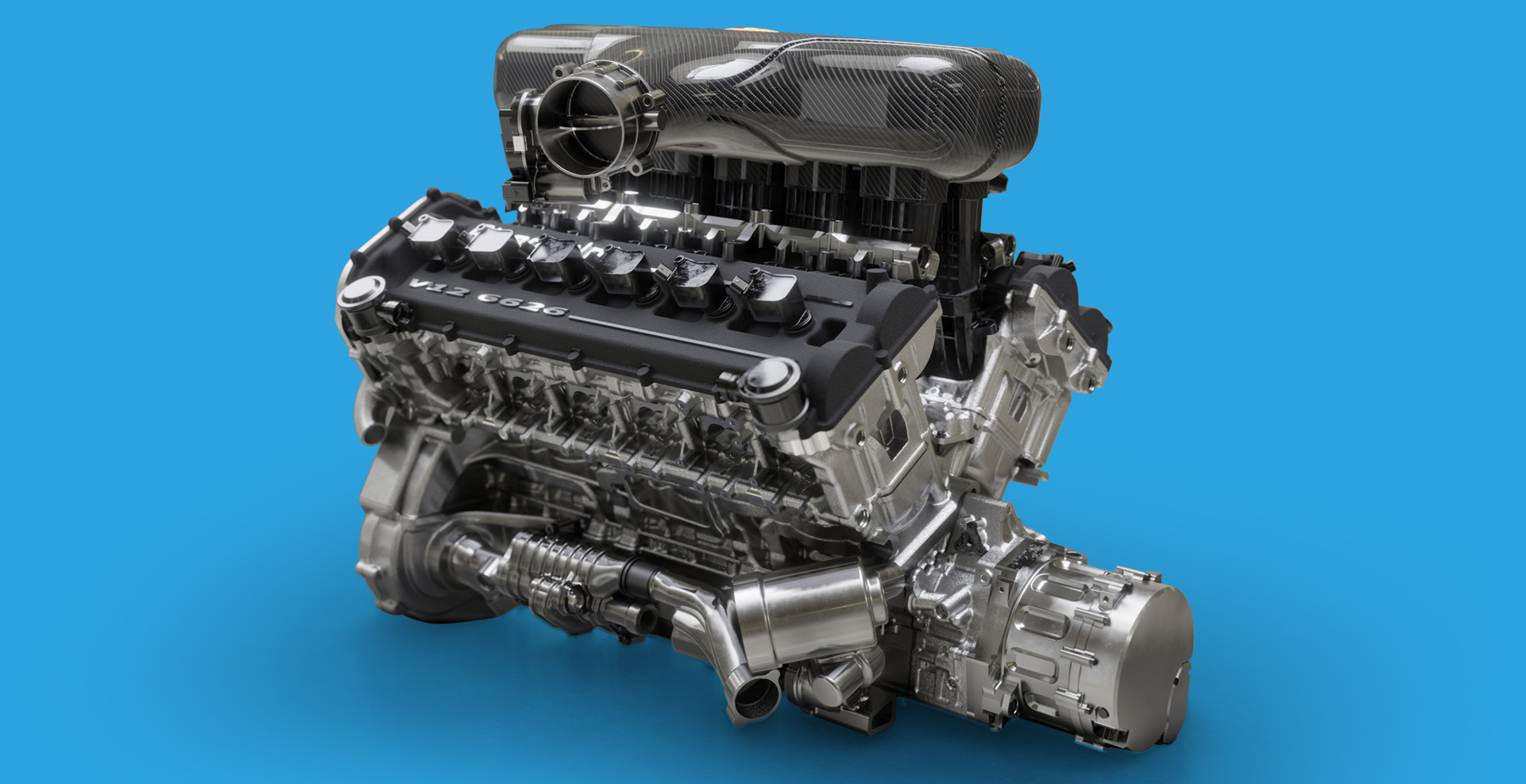Improve Your Fleet with Engines For Africa's Option
Improve Your Fleet with Engines For Africa's Option
Blog Article
Check Out a Variety of Engines for each Automobile and Function
The automotive landscape is increasingly complicated, with a varied selection of engine types designed to meet certain efficiency and effectiveness needs across different lorry categories. Additionally, sturdy engines serve the needs of work lorries, while eco-friendly choices are obtaining grip in the search of sustainable transportation.
Types of Automotive Engines
Automotive engines can be classified right into several unique kinds, each developed to meet certain efficiency and effectiveness requirements. One of the most usual classifications consist of inner burning engines, electrical engines, and crossbreed systems.

Electric engines, on the other hand, operate electrical power stored in batteries, offering instant torque and absolutely no discharges. These engines are becoming progressively prominent due to improvements in battery modern technology and the growing emphasis on sustainability.
Hybrid systems integrate both interior combustion and electric engines, making it possible for automobiles to optimize gas efficiency and minimize exhausts by effortlessly switching between power resources. Each engine type provides its benefits and downsides, affecting variables such as car layout, intended use, and market need. Recognizing these differences is vital for customers and suppliers alike when selecting the proper engine for their details needs.
Performance Engines for Sports Cars
Performance engines for cars are especially crafted to supply enhanced power, dexterity, and rate, setting them aside from common auto engines. These engines often utilize advanced modern technologies such as turbocharging, turbo charging, and variable shutoff timing to take full advantage of effectiveness and responsiveness.
Usually, performance engines are developed with higher compression ratios, which enable better power removal from fuel. This results in impressive horse power and torque figures, enabling quick velocity and higher full throttle. Moreover, the lightweight materials made use of in these engines, such as light weight aluminum and carbon fiber, add to lowered total car weight, enhancing handling and ability to move.
Engine configurations like V6, V8, and also hybrid systems prevail in efficiency cars, each offering one-of-a-kind benefits in regards to power shipment and driving dynamics. The adjusting of these engines is also essential; several makers maximize the engine monitoring systems to offer an electrifying driving experience, commonly consisting of sport modes that readjust throttle reaction and equipment changes.
Effective Engines for Daily Commuters
In the world of daily travelling, reliable engines play an important duty in enhancing gas economy and lessening exhausts while offering trusted performance. As metropolitan populaces expand and environmental issues escalate, the demand for cars furnished with reliable powertrains has risen.
Modern engines designed for daily commuters usually incorporate technologies such as turbocharging, direct fuel shot, and crossbreed systems. Turbocharging boosts engine performance by forcing more air into the burning chamber, enabling for smaller sized, lighter engines that do not jeopardize power outcome. Direct gas injection boosts gas atomization, bring about better combustion and increased efficiency.
Hybrid engines, combining internal combustion with electric power, more augment gas economic situation, specifically in stop-and-go website traffic, where typical engines can struggle with inadequacies. Electric motors assist during velocity and can run separately at low speeds, reducing total gas usage.
Additionally, improvements in engine administration systems and lightweight products add considerably to efficient engine design. By concentrating on performance, sturdiness, and environmental sustainability, manufacturers remain to supply engines that not only meet the needs of day-to-day travelling however additionally straighten with worldwide efforts to reduce carbon impacts.
Heavy-Duty Engines for Job Automobiles
Heavy-duty engines for work vehicles are consistently crafted to deliver outstanding torque and dependability under demanding conditions. These engines are designed to do in environments where traditional engines might falter, such as building and construction sites, logging procedures, and agricultural settings. The key focus of sturdy engines is their ability to create high levels of power while keeping sturdiness over extended durations of procedure.
Normally, durable engines use sophisticated materials and durable building strategies to withstand the rigors of hefty work. Attributes such as strengthened cylinder blocks, boosted air conditioning systems, and advanced gas injection innovations add to their efficiency. These engines often run at lower RPMs, which assists to optimize gas efficiency while supplying the required power for transporting and hauling.
Along with mechanical robustness, durable engines are frequently outfitted with advanced digital control devices (ECUs) that take care of performance, discharges, and diagnostics. This combination enables far better monitoring and maintenance, guaranteeing that work automobiles remain efficient and operational.
Ultimately, durable engines are a crucial part in the efficiency of various industries, supplying the needed power and reliability to tackle the most difficult of jobs.
Eco-Friendly Engine Options
The expanding focus on sustainability has brought about the advancement of environment-friendly engine alternatives that focus on minimized emissions and improved gas effectiveness. These engines are designed to decrease the ecological effect of vehicles while still providing the efficiency and integrity expected by consumers.
Among one of the most notable eco-friendly options are electrical and hybrid engines. Hybrid engines integrate typical inner burning engines with electric propulsion, enabling reduced gas intake and lower Check Out Your URL greenhouse gas discharges. Electric engines, on the other hand, operate entirely on battery power, producing zero tailpipe discharges and adding to cleaner air top quality.
One more encouraging growth is the development of biofuel engines, which utilize sustainable resources, such as plant products, to power lorries (Engines For Africa). By utilizing biofuels, these engines can reduce reliance on nonrenewable fuel sources and lower total carbon footprints

As the auto market advances, environmentally friendly engine choices will play an important duty in driving the shift towards even more lasting transport solutions.
Conclusion
The automobile industry offers a varied range of engines designed to fulfill various lorry requirements and objectives. From high-performance engines that boost sporting activities automobile capacities to reliable versions focusing on fuel economic climate for everyday travelers, each kind offers a specific function. Heavy-duty engines satisfy durable job lorries, while eco-friendly choices, such as you can try these out electric and biofuel engines, promote sustainable transportation. This thorough array makes sure that all driving needs are resolved, adding to developments in auto innovation and environmental stewardship.

Report this page